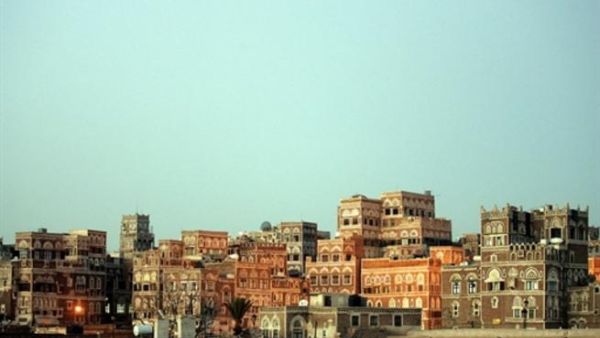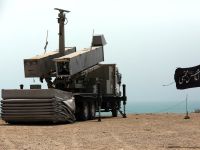Abdurahman was born in Mogadishu in 1982. His father had a post in the Somali government and from a young age Abdurahman received a high-quality education in a private Egyptian school.
In September 1991 severe fighting broke out in Mogadishu, which continued to spread throughout the country. Over 20,000 people were killed or injured by the end of the year.
By March 1992, like many other Somalis, Abdurahman and his family of 12 were on the move. They headed for Bosaso, a city in the north of the country serving as the nation's main port. From there they would try to take a boat across the Gulf of Aden and into Yemen.
"No education, no protection," is all Abdurahman had to say when asked why they left.
For a fee of USD 150 per person, his family bought their way on board a battered open-top fishing boat heading for Yemen's southern port of Aden.
The boat was so full with refugees, there was not even enough space to carry food and water. But for Abdurahman, the hardest part of the journey was not the hunger or thirst, but the heat. For three days he was forced to sit shoulder to shoulder with fellow passengers in full view of the scorching sun.
For some it was too much. He recalls three boys who climbed out onto the boats rigging to try and catch some of the sea breeze, two of them were knocked off balance by a wave and fell into the sea. "We watched as sharks tore at their legs, they screamed for help but the captain would not allow the boat to stop."
Khadra's journey to Yemen was far less direct. She was four when she left her home town of Hargeisa in northern Somalia. Following an outburst of tribal violence, her mother and her two sisters fled for Italy in search of a relative.
They got as far as Libya when the news reached them that their father had been killed in Hargeisa, by the same tribe they had been fleeing. Distraught, they returned to Somalia to bury him and seek reconciliation.
Unfortunately they could do neither - Khadra's father came from a different tribe than her mother. Now that he had passed away, his family wanted nothing to do with them. They were on the move again. Having spent most of their money trying to reach Europe, they decided, like Abdul and his family, to take the boat to Yemen.
Life in Yemen
Abdurahman and Khadra's childhood were spent in a constant state of flux, moving from one refugee camp to another.
Abdurahman remembers attending school in Aden but making regular trips to the Kharaz refugee camp to collect food for his family.
Khadra and her sisters found themselves a shelter in the suburb of Basateen, a slum on the outskirts of Aden, occupied by thousands of Somalians who opt for a life in the city over one in the camp.
As if fate hadn't already dealt them a harsh enough blow their house was flattened by a stray rocket during the 1994 civil war between the armed forces of the former Northern and Southern Yemeni states.
With help from a local charity, Khadra recalls watching her mother single-handedly construct a new house from wood.
As Somalian children growing up in Yemen, neither had problems integrating.
"I was here from a young age, so I spoke the language, I wore the same clothes, and I mixed with Yemenis," said Khadra.
Their problems started when they reached university where their Somalian nationality suddenly became a burden.
Despite having refugee status, Somalians are still subject to the same university fees as other foreign students living in Yemen. Abdurahman was ranked in the top three for his year at high school in 2003.
He was planning to pursue a degree in business administration but the USD 1200 a year tuition fees soon put an end to that idea. Instead of going to university, Abdurahman moved into the construction industry where he worked as a builder for seven years.
When Khadra finished school she was already working full-time in a supermarket as well as minding and cooking for her younger sisters. Like Abdurahman, she was a high performing student but was under no illusions about the chances of her attending university in Yemen.
"I knew plenty of Yemeni's who struggled to get in, for Somalians it is near on impossible."
Armed with only a Yemeni high school certificate and unable to return to their home country, it is hard to see how things could have changed much for these two aspiring students.
But this time luck was on their side. Through friends they both chanced upon a DAFI scholarship, a program which supports tertiary education for deserving refugees worldwide.
DAFI – the Albert Einstein German Academic Refugee Initiative Fund, is a program, funded by the German government and coordinated in Yemen by the UNHCR and Save the Children, giving scholarships to refugees at universities, colleges and polytechnics in their host countries.
Competition for places is fierce and applicants must undertake a series of intensive exams and interviews. Those who are successful have their tuition fees covered and receive a monthly allowance of USD 100.
Last year 60 Somalian students received scholarships to study at universities in Yemen costing at a total of USD 145,641.
"I used to dream of getting 100 Rials, now I'm getting USD 100 a month to help support me in my education," joked Khadra.
The defining factor
For Abdurahman there are two categories of Somalians in Yemen: Those who get scholarships and those who don't.The former have the opportunity to find jobs and earn a reasonable salary, the latter end up working in odd jobs here and there.
After seven years working in construction Abdurahman now has a degree in administrative sciences and a job at Save the Children working as an education assistant. He hopes to enrol in a Masters program in the near future.
Khadra has just completed a degree in midwifery and is about to undergo interviews for a position with Save the Children. She hopes to train as doctor when she is older.
Despite having lived most of their lives in Yemen, both say they would love to return to Somalia.
"The day that I and my family can live peacefully in Somalia will be the day I return home," said Abdurahman. "The Somalian people are scattered across the world but they are still Somalian, and one day they will return."








